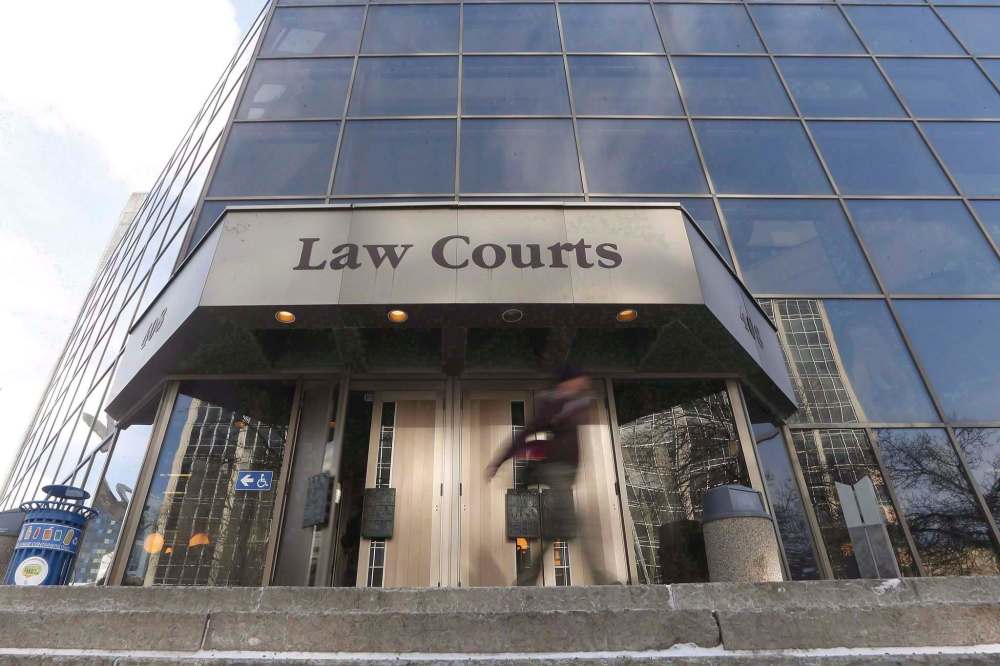Transcript backlog needs immediate attention
Read this article for free:
or
Already have an account? Log in here »
To continue reading, please subscribe:
Monthly Digital Subscription
$0 for the first 4 weeks*
- Enjoy unlimited reading on winnipegfreepress.com
- Read the E-Edition, our digital replica newspaper
- Access News Break, our award-winning app
- Play interactive puzzles
*No charge for 4 weeks then price increases to the regular rate of $19.00 plus GST every four weeks. Offer available to new and qualified returning subscribers only. Cancel any time.
Monthly Digital Subscription
$4.75/week*
- Enjoy unlimited reading on winnipegfreepress.com
- Read the E-Edition, our digital replica newspaper
- Access News Break, our award-winning app
- Play interactive puzzles
*Billed as $19 plus GST every four weeks. Cancel any time.
To continue reading, please subscribe:
Add Free Press access to your Brandon Sun subscription for only an additional
$1 for the first 4 weeks*
*Your next subscription payment will increase by $1.00 and you will be charged $16.99 plus GST for four weeks. After four weeks, your payment will increase to $23.99 plus GST every four weeks.
Read unlimited articles for free today:
or
Already have an account? Log in here »
Hey there, time traveller!
This article was published 11/08/2018 (2676 days ago), so information in it may no longer be current.
As legal axioms go, it’s among the most used and most undeniably true: justice delayed is justice denied.
Which is why Manitoba’s government should be both appalled and spurred to immediate action by this week’s report that some courtroom proceedings in the province are being brought to a standstill by lengthy delays in the preparation of court transcripts.
At issue is a shortage of the typists whose job it is to create the word-for-word printed records of court proceedings based on digital audio recordings captured in court. Much of the work used to be done by a transcription service, but Manitoba Justice now relies on individuals who are contracted to produce transcripts on an on-demand basis.
The demand — Manitoba Justice requested transcription of 166,200 pages in 2016-17, according to its annual report — currently far exceeds the capacity to supply, meaning it can take up to seven months for a transcript to be delivered. Even an expedited transcript, which would normally be completed within a week, now takes about 20 business days.
There’s much more at stake here than a bureaucratic bookkeeping backlog. The delayed delivery of transcripts has very real negative consequences for virtually anyone — lawyers, judges, self-represented parties, correctional-system officials — trying to navigate a case through the court system.

“It slows everything down. Transcripts are integral to our job,” said Scott Newman, a spokesman for Manitoba’s Criminal Defence Lawyers Association. He said delays affect individuals who are in jail and need transcript information to argue their incarceration is unjust, as well as those who are either seeking to move a case to trial or attempting to launch an appeal.
The reasons for the transcript backlog remain somewhat unclear — whether it’s as simple as the long-unchanged $3-per-page fee being inadequate to attract individual contract transcribers, part of a larger over-arching realignment strategy requiring a renegotiation with a transcription firm or a basic exercise in cost containment in line with the province’s debt-reduction effort — but what isn’t up for debate is that the situation is unacceptable.
Politicians love to talk about law and order and public safety, but the emphasis seems almost exclusively to be front-loaded onto law enforcement and crime prevention. More police on the streets, tougher laws and longer sentences — that sort of thing. Once those accused of offences find their way into the justice system, resources become considerably more scarce and the wheels turn at a decidedly more measured pace.
While it’s certainly one of the symptoms — along with overcrowded remand cells, a shortage of judges and chronic delays in bringing criminal cases to trial — of the larger ills afflicting the justice system, the transcript backlog is also an immediate problem that could be addressed with an immediate solution.
Two things are required: political will and money.
The former needs to be demonstrated by Manitoba’s provincial government, and that necessarily means freeing up enough of the latter to either hire more court transcription workers or raise the per-page rate to a level that will attract more typists to the task. The notion of re-engaging a transcription service to handle the task on an ongoing basis, rather than in an on-demand contract arrangement, should also be considered — it’s likely the most expensive option, but also the one with the best chance to eliminate the backlog.
The simple reality, like justice itself, should not be denied.










